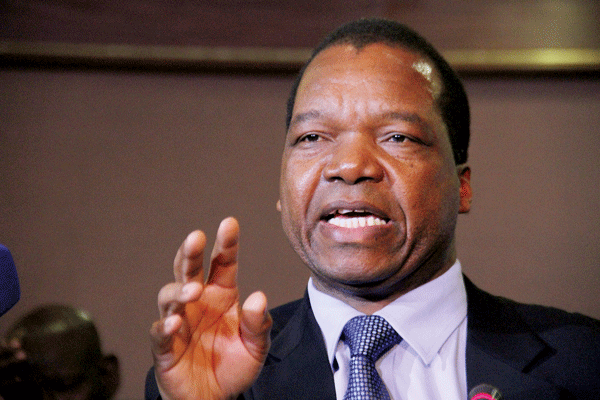-
Tips for becoming a good boxer - November 6, 2020
-
7 expert tips for making your hens night a memorable one - November 6, 2020
-
5 reasons to host your Christmas party on a cruise boat - November 6, 2020
-
What to do when you’re charged with a crime - November 6, 2020
-
Should you get one or multiple dogs? Here’s all you need to know - November 3, 2020
-
A Guide: How to Build Your Very Own Magic Mirror - February 14, 2019
-
Our Top Inspirational Baseball Stars - November 24, 2018
-
Five Tech Tools That Will Help You Turn Your Blog into a Business - November 24, 2018
-
How to Indulge on Vacation without Expanding Your Waist - November 9, 2018
-
5 Strategies for Businesses to Appeal to Today’s Increasingly Mobile-Crazed Customers - November 9, 2018
Zimbabwe to start using bank-issued notes, a 1st since 2009
These salaries have to be paid in foreign currency as Zimbabwe abandoned its own currency in 2009 in order to stem runaway inflation.
Advertisement
The central bank’s Mangudya, sought to allay worries by saying the bond notes, to be initially circulated in $2 and $5 denominations, would account for less than one percent of the $6 billion held in bank deposits.
The southern African country has been using a mix of different foreign currencies – and most importantly USA dollars – since its own currency collapsed in 2009 during a period of hyperinflation. The central bank governor hopes bond notes, which will have no value outside Zimbabwe and are a cash substitute, will help exporters – because at the moment Zimbabwe imports more than it exports.
Zimbabwe will start using the notes in October.
A wave of protests has shaken Mugabe’s regime this year, with “No to bond notes” among the regular slogans expressing grievances against the government amid a worsening economic crisis.
In May, RBZ governor John Mangudya said the bank would introduce bond notes worth $200 million under a facility guaranteed by the African Export Import Bank.
“We anticipate by the end of the year $75 million will be in the market”.
Mangudya also said the central bank had agreed with domestic banks that interest rates should be capped at 15 percent.
“It will immediately destroy trust”.
It has forced the government to delay paying salaries each month to civil servants and those in the security forces.
“There is no money because there is no new investment”.
In his mid-term monetary policy review yesterday, Mangudya said he had heard and taken note of public’s concerns, fear, anxiety and scepticism of bond notes, which all boiled down to general lack of trust and confidence within the economy.
Zimbabwe once removed 12 zeros from its battered currency at the height of hyperinflation in 2009 when the largest note was the $100tr denomination.
Advertisement
The president, 92, has often used brutal force to silence his opponents, and he recently warned the protestors they were “playing a risky game”.





























